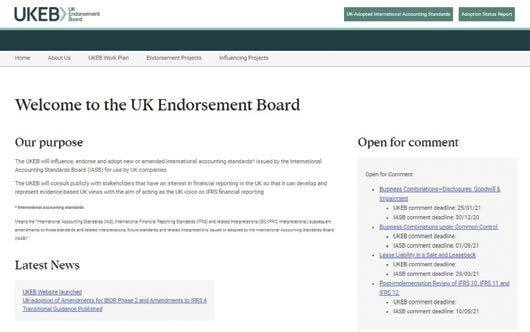SELF EMPLOYMENT
Self-employment: what lies ahead? Richard Hepburn takes a closer look at some of the major events that will affect the self-employed in 2021.
W
ith 2021 now in full swing for the self-employed, there are a few things to keep in mind as the new year brings several obstacles to navigate. In this article, we take a closer look at some of the major events that will affect the self-employed in 2021 and offer some insight into how contractors and freelancers can better prepare for the new year and the challenges it might bring.
Richard Hepburn Operations Manager, Gorilla Accounting
©
Brexit
The transition period ended on 31 December 2020, and although businesses had been urged to prepare for Brexit, it’s still quite unclear what this means for freelancers and contractors. Despite the closed deadline, it’s still not entirely known what will happen to trade between the EU and the UK. What’s clear is that some things have changed, be it regarding goods and services or the movement of people: ● UK businesses are no longer required to complete an EC Sales List when supplying services to businesses located in the EU. ● All supplies of digital services to consumers in EU member states are liable for VAT in the consumer’s member state. ● If you receive personal data from people in the EEA and EU, you may have to ensure that you can continue to use it in 2021. ● You must also ensure that your qualifications are still valid in the EU and recognised by firms and organisations there if you plan on working with EU countries.
IR35
April 2021 will come with changes to the current IR35 legislation. IR35 is also called intermediaries legislation – according to the government, an intermediary is usually a limited company that “will normally be a worker’s personal service company but could also be a partnership, a managed service company, or another person. A worker is sometimes known as a contractor.”
18
ge
ma
yi
tt Ge
Author bio
Richard Hepburn is Operations Manager at Gorilla Accounting with experience in the contractor accounting sector.
While IR35 was first introduced in 2000, it has been criticised by business owners and tax experts since then. This is because the legislation is difficult to understand, is considered to be badly implemented by HMRC and has caused issues for many contractors across the nation (some of them pretty high profile). It’s important that you understand off-payroll working rules and what’s going to change in the new tax year. Currently, in the public sector, the client decides your employment status, but you decide your own status if you work in the private sector. After 6 April 2021, any private sector clients classed as medium or large entities will decide your employment status and, if you’re within IR35, you’ll have to pay the adequate tax and National Insurance contributions. However, contractors and freelancers are likely to be in demand due to the shift caused by the pandemic. Companies may prefer to hire someone they don’t need to train and who’s ready to start work immediately; they may also want to hire contractors and freelancers for a specific project instead of taking on a new employee and paying a salary.
Coronavirus
Support for the self-employed has been crucial since the start of the pandemic and is set to continue throughout 2021. This is good news ISSUE 115 | AIAWORLDWIDE.COM
to
ho
kp
oc
St s/i










